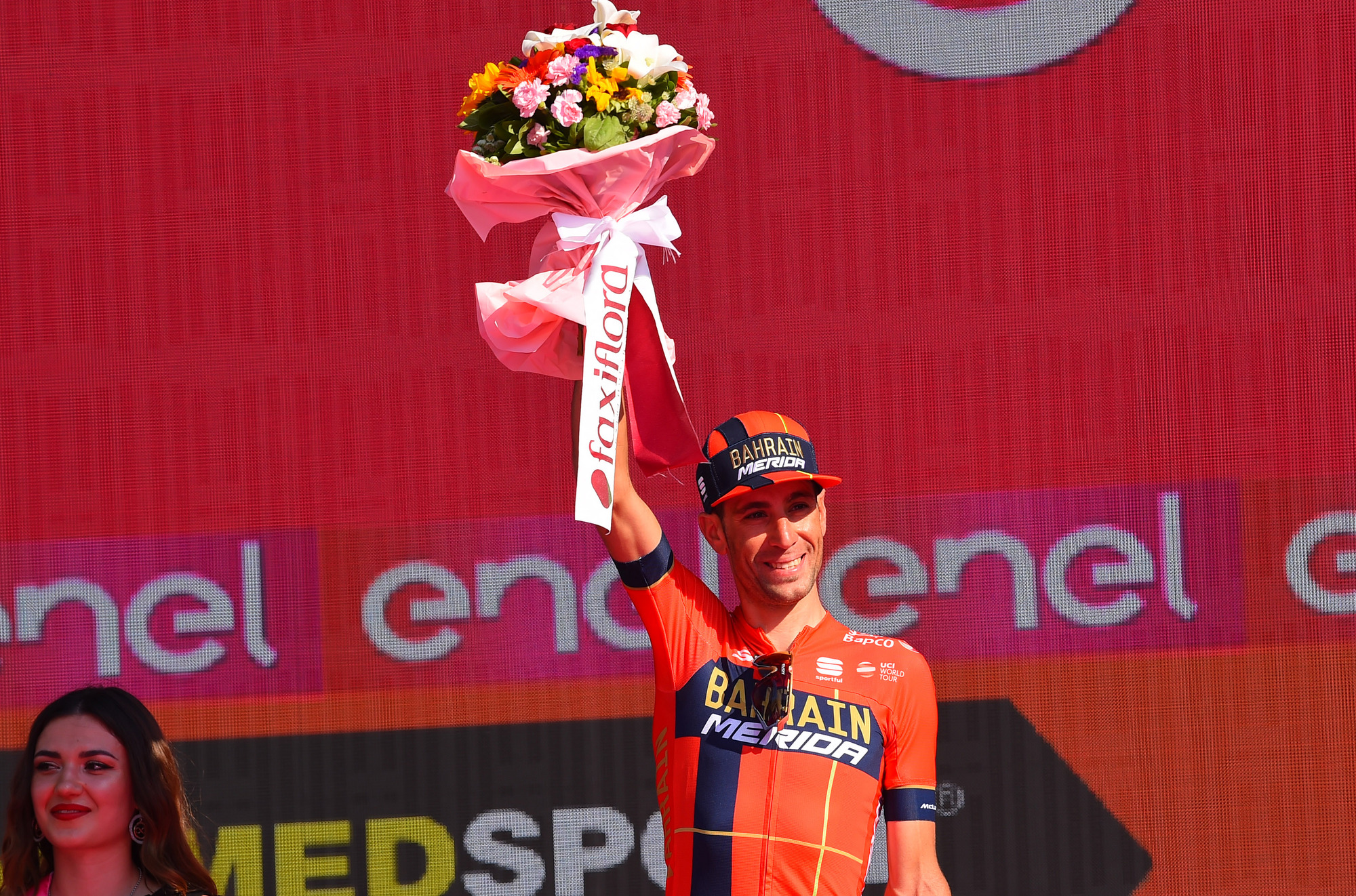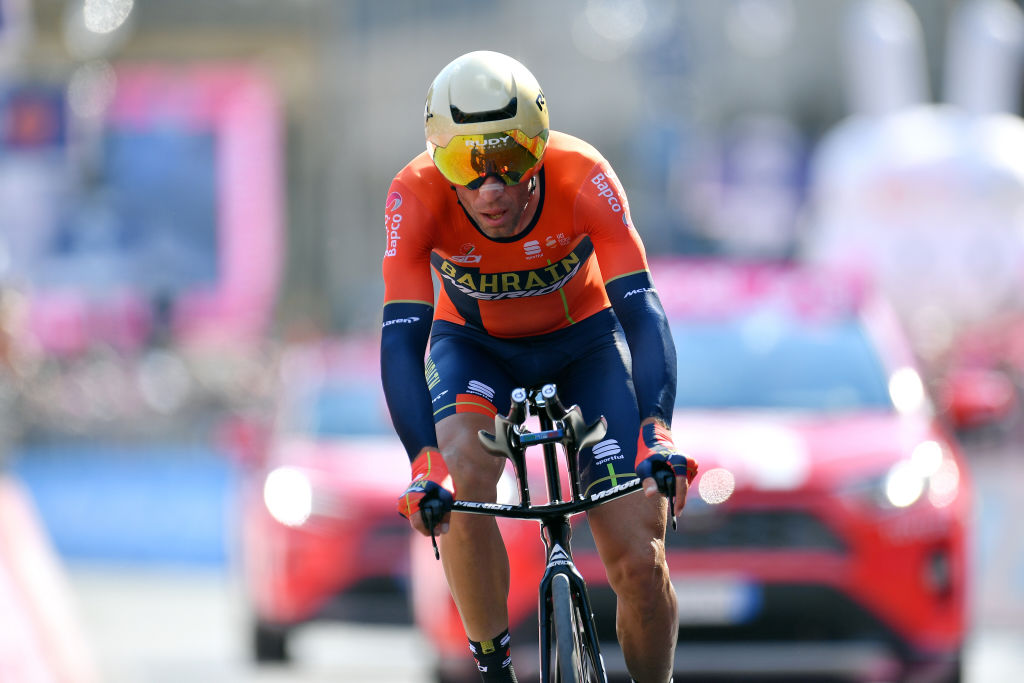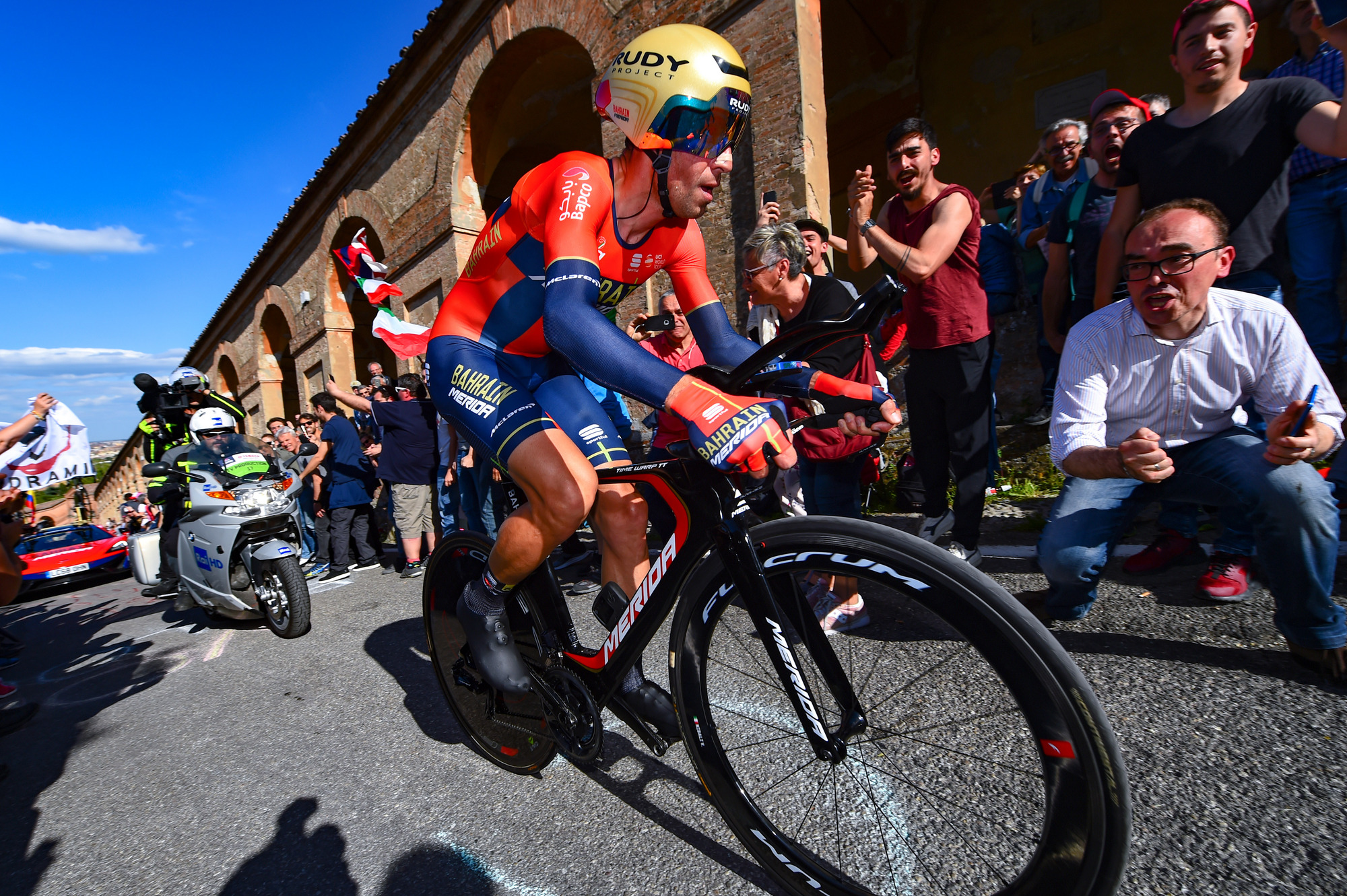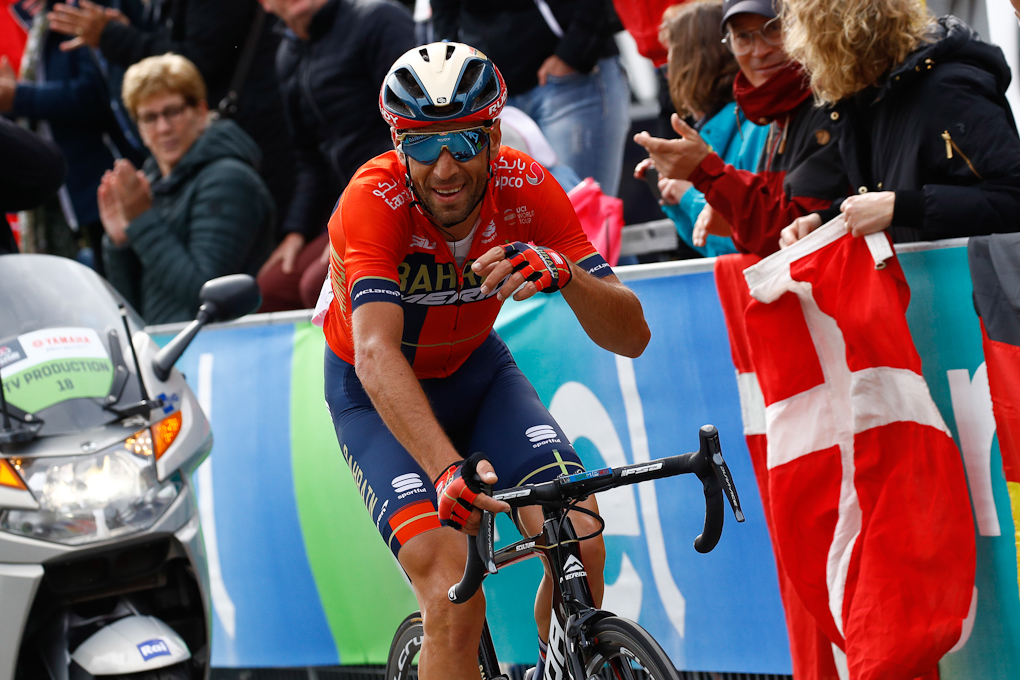Nibali turns focus to Tour de France after Giro d'Italia podium
Italian calls Roglic spat "a pointless polemic"




It felt like a microcosm for Vincenzo Nibali's entire Giro d'Italia. Half an hour earlier, he had stood in the centre of the Arena di Verona and watched as Richard Carapaz was presented with the Trofeo Senza Fine as the final overall winner. Now, in the chaotic mixed zone in the bowels of the ancient Roman amphitheatre, Nibali was being asked to revisit his spat with Primoz Roglic from a week previously. Once again, the focus was on the wrong rival.
"It was a pointless polemic," Nibali said, before explaining once more his stern critique of Roglic's tactics at Ceresole Reale on stage 13 and rehashing the controversy that built up over the Slovenian's attempted fist bump at the finish. "It was a polemic built up by you guys. What I said afterwards was mainly a case of being angry after a stage that had gone badly."
Nibali's 9th place in Sunday's final time trial in Verona was enough to secure second place overall, 1:05 behind off Carapaz, while Roglic finished the Giro in third, a further 1:25 back. Carapaz may have been stronger in the final week of the race, but, deep down, Nibali will surely harbour regrets at how he allowed the Ecuadorian to manoeuvre himself into the overall lead in the first place.
When Nibali and Roglic fiddled on the upper reaches of the Colle del Nivolet on stage 13, their Giro challenges were burned. Their marking of one another there allowed Carapaz to snatch a crucial 1:19 from the two favourites. The Ecuadorian repeated the dose the next day, riding into pink at Courmayeur at least in part because Roglic preferred not to bear the responsibility of leading the race.
"I don't have regrets even though many people are saying I should because we made a mistake in letting Richard get away," Nibali said. "In the Courmayeur stage, in particular, he was very good. He went hard in a counter-attack and gained time. At first, we chased but in the finale, everyone's legs were what they were and he found the space to take a gap that he consolidated to the end. I have no regrets because I tried to do a great race by interpreting it as best I could."
Podium
Three weeks ago, Nibali set out from Bologna aiming to surpass Fiorenzo Magni as the oldest Giro winner in history. The 34-year-old fell short of that landmark, but he did succeed in adding a further line to his remarkable Grand Tour record. In his 21st Grand Tour appearance, this was his 11th podium finish, a feat bettered only by Jacques Anquetil with 13 and Bernard Hinault, Eddy Merckx and Felice Gimondi with 12.
By neat symmetry, Nibali's first podium finish in a Grand Tour also came on the Giro in the Arena di Verona, but rather than cast his mind back to that afternoon nine years ago, he preferred to focus the road he travelled in the past ten months since his crash at Alpe d'Huez on the 2018 Tour de France.
Get The Leadout Newsletter
The latest race content, interviews, features, reviews and expert buying guides, direct to your inbox!
That incident left Nibali with a fractured vertebra and private doubts about whether he would ever return to his previous levels, though he rushed back into competition at the Vuelta a España in a forlorn bid to mount a challenge at the Innsbruck Worlds last September. Through the winter months, his pre-season preparation was complemented by a steadier rehabilitation programme.
"If you remember I was at the Vuelta within a month of the crash, but I had absurd pain. Then, little by little, the pain went away," Nibali said. "Getting here to the Giro and not having any problems anymore is the biggest victory for me. I was curious myself to see if I could get back to fight for a Grand Tour. The fact that I finished second shows that I'm still competitive."
Indeed, the consistency of Nibali's performance throughout the Giro was reminiscent of 2017, when he placed third behind Tom Dumoulin, but he could never scale the remarkable late heights that carried him to his dramatic second overall victory in 2016. Through the final week, Nibali was never able to discommode Carapaz, and he began the final 17km time trial in Verona with 1:54 to recoup. Even before he took the start ramp, he knew he had run out of road. There would be no emulation of Francesco Moser's defeat of Laurent Fignon in 1984.
"No, it was really difficult," Nibali said when asked if he still believed he could win on Sunday morning. "But I knew I could do a good time trial. And before the final stage, you can never give up."
Nibali will undoubtedly return to the Giro, most likely in the colours of Trek-Segafredo, the team he is expected to join next season. For now, however, he remains a Bahrain-Merida rider. The set-up faces a period of transition in the coming weeks as Rod Ellingworth joins the management team, but Nibali's pre-existing schedule remains in place.
He will ride the Gran Premio Città di Lugano next weekend before building towards the Tour de France, though he was reluctant to commit to a tilt at final overall victory, instead floating the idea of chasing stage wins or perhaps even the king of the mountains jersey. "For the Tour, we'll see because I've used up a lot of energy. I'll see how I approach it, how my condition is and how my body responds," Nibali as he rose to take his leave from the media scrum.
Another Giro in the books. One that got away, perhaps, but that would do a disservice to Carapaz, who proved full value for his victory.
"I fought hard to try to win this Giro, but I came up against a great Carapaz – very strong and well guided by his team, too," Nibali said. "He's was really very strong, there's nothing more to say."

Barry Ryan was Head of Features at Cyclingnews. He has covered professional cycling since 2010, reporting from the Tour de France, Giro d’Italia and events from Argentina to Japan. His writing has appeared in The Independent, Procycling and Cycling Plus. He is the author of The Ascent: Sean Kelly, Stephen Roche and the Rise of Irish Cycling’s Golden Generation, published by Gill Books.